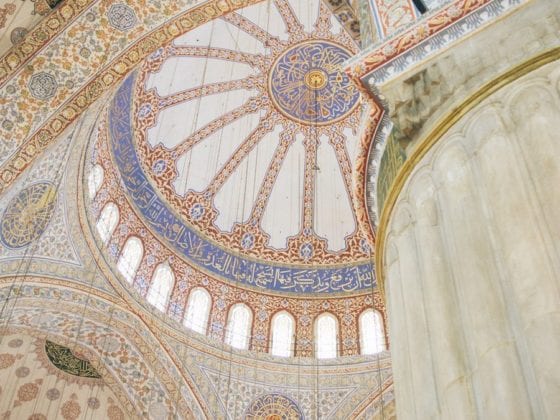…Once, when trying with chin against a well-curb,
I discerned, as I thought, beyond the picture,
Through the picture, a something white, uncertain,
Something more of the depths—and then I lost it.
…What was that whiteness?
Truth? A pebble of quartz? For once, then, something.
—Robert Frost
I have a love-hate relationship with epic novels. The Red Horse by Corti, The Idiot by Dostoevsky, the Lord of the Rings trilogy. I love the gasps and sighs and ups and downs of that first read. I get enamoured with the character development and crave the distraction at work waiting for lunch when I can read while I eat my soup. Nothing beats the kind of 3am and my light’s still on because I need to get to the next chapter thrill. Yet, even though I quest continually to find the next “big novel,” I in turn truthfully hate something about each one: I’ll never read it for the first time again.
I was an English Literature major in university, so I know the arguments and the merits of reading, re-reading, and re-reading again, to find the nuances and the cleverisms. Yet, the fact remains that once you’ve read a book, that huge shot of mystery is over. It’s concluded. And you know the ending.
Why I love the first read of a good novel is precisely why I feel personally so comfortable with what I call, in my spiritual life, “living in the tension.” The Tension is the place where you ask and you ask, and even after you receive insight, there it is: A tiny uncertainty. A minute snag. A glimmering next question, shining like Frost’s light or pebble in his poem For Once, Then, Something.
I’m comfortable embracing what I imagine to be the “mystic on the inside.” I find solace and comfort in the writings of Thomas Merton, Teresa of Avilla, and philosopher poets from the years before like Rilke and Hopkins. All of these men and women grappled in rhyme and prose over those minutia, those questions, that those who would consider themselves atheists often tout to be a waste of time. But, in my experience, the greatest thrills are hidden in the “big questions.” I’m less comfortable with an ultimate reality that says, “this is exactly how it is,” because I think I know — as I think we all do — that it can’t ever be just as simple as that.
But, in my experience, the greatest thrills are hidden in the ‘big questions.’
Simple is just one formulaic reason why a friend suddenly died. It is “heaven gained another angel” or “life is chaos.” Simple explains away the construction of a perfectly formed passion fruit flower. It seems to urgently need answers where what might be required is wonder. But faith says, “there’s more.” More can be hard to handle, because it’s unknown. More might be impossible to reason with. More might be out of our comprehension, control, or comfortability.
Yet, we thrill seek in so many ways. 24, LOST, Heros, novels…I don’t think we are just looking for the next adrenaline rush, I think we are longing for the out of control. The anticipation of not being quite certain what could happen next; the joy of shaking with a 3am revelation that changes our whole paradigm. And that’s what I love so wildly about the life of faith. It’s a mystery. It’s outside of myself. If anything in this world needs to be outside myself, it’s the “ultimate answers.” If they were cut and dry, I’d trust them less. If they closed up neat and tight like the end of Atonement, I’d be more than bored; I’d be disappointed.
What are your “big questions”?
Image via Stefan Junir











3 comments
I’m confused as to why “those who would consider themselves to be atheists” are written as not being thinkers of the “big questions.” It seemed curious to me because the article itself seemed more to be fond of a nebulous, almost agnostic kind of belief and I cannot see why someone of non-theistic belief wouldn’t still find mystery and wonder in the living of life. In my experience, I have never known a secular person who was uncurious about the world, who said “this is the answer” and stopped looking. I have known many who are always learning and refining their worldview and saying, “What do you think about this?” and “Why do you think we do that?” In fact, most people I know were raised with religious beliefs and if they aren’t religious today, it’s because they asked the big questions and decided the scientific and philosophical underpinnings didn’t hold up the conclusion they were brought up to believe. I guess I know a lot of people who aren’t spiritual until you start getting into nuance about empathy and humanism and suchlike, but who still find life to be a great mystery, adventure, and passion. Not being theistic isn’t inextricable with nihilism. And so I found the comment odd, especially because it seemed to be addressed to an audience in which no reader was an atheist. Now I am wondering, “Is Darling written for a primarily religious audience?” I understand that we live in a world of many creeds and so I am certain that writers and readers alike have differing ones that make their lives meaningful, purposeful, and fulfilling. I feel “live and let live” about that and I find it interesting when people write about their faith experiences, so I certainly don’t mind it. Because I can’t tell if there is just an underlying assumption that everyone reading as some kind of spiritual faith beliefs or if secular readers are unwelcome, if they don’t fit whatever the Darling character is supposed to be. I wonder because this is the only mention to atheism ever in the entire magazine blog, but there are several about writer’s experiences with their faiths and while I don’t have a problem with that (after all, it’s their understanding of their own life stories and whatever insight the gleaned from that) and I’m wondering if that is more coincidental or if non-religious readers are undesired.
Loved this!
Well said! We’re innately searching for something bigger than ourselves. Something that we’ll never fully understand, that challenges how we think and what we believe. When we catch a glimpse of that mystery, our soul responds and we’re the better for it.